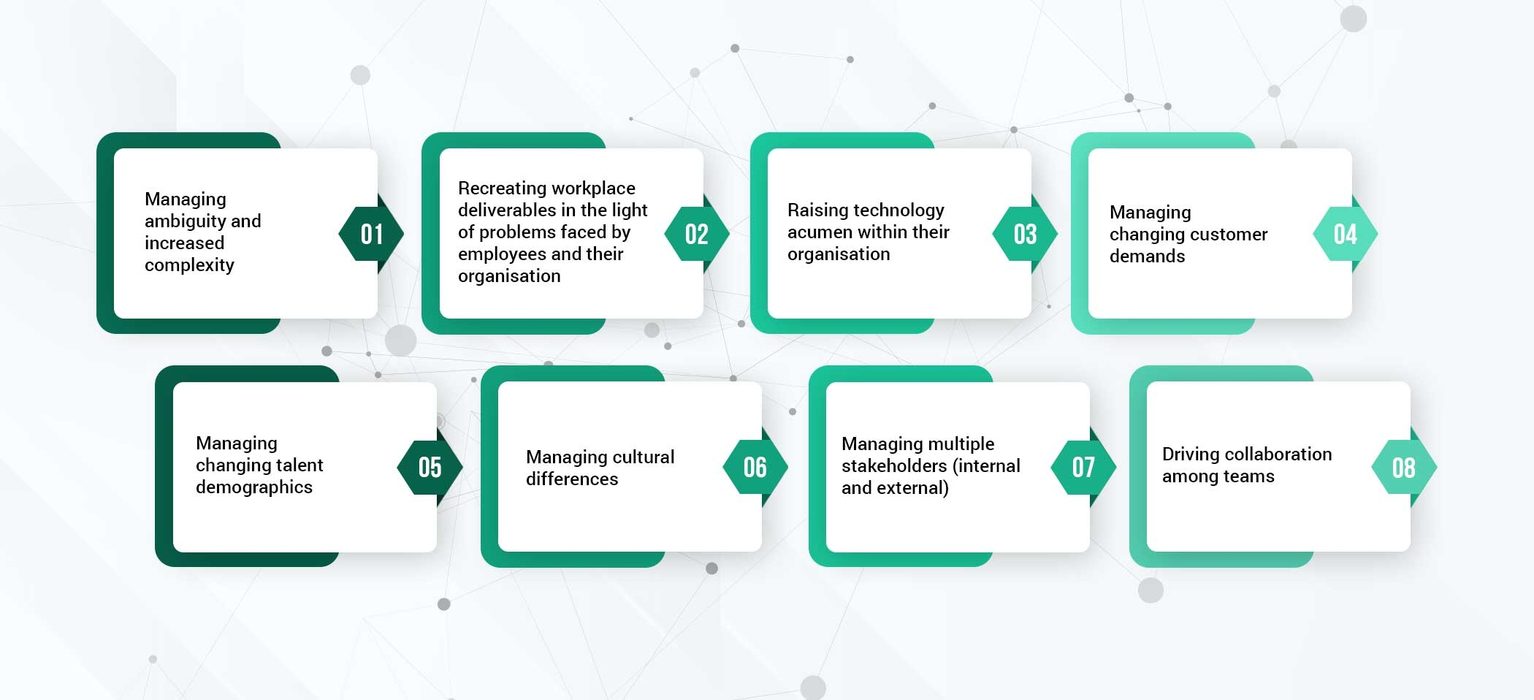Leadership has been described as that single and consistent factor in defining, shaping, and directing the success of an entity. Regardless of size, every organisation requires strong and effective leadership to traverse and navigate the complexities that life presents. With disruption becoming a common language and business models rapidly changing owing to the massive infusion of technology and the impact of the Covid-19 pandemic, the way teams and organisations are led must also be revisited.
Today, we speak of augmented workforces, flattened organisation structures, and the need for higher levels of collaborative work. Leadership is that single factor that acts as a catalyst in making all these workplace dynamics and realities happen inclusively. From our work with our clients in diverse sectors of the economy, we find that employees are increasingly challenging their leaders to step up and chart the course to navigate an uncertain world. Managing Directors (MDs) and Chief Executive Officers (CEOs) are being pressured to take constructive positions on the issues faced by societies that directly impact employees. There is increased talk on the social matters of diversity, inclusion, gender equality, climate change, politics, religion, ageism, automation, and population dynamics, amongst others. Hence, business leaders can no longer only focus on the bottom line. They must get involved in the matters that concern the people they lead.
Leadership in 2021 and beyond must embrace the reality that the traditional mindset or models of leading won’t cut it anymore. Leaders must become more diverse and vocal in their positions and opinions on social issues and protect their employees from the rapid change and involvedness that our VUCA (Volatility, Uncertainty, Complexity, and Ambiguity) world presents. Employees now look to their leaders as parents. In 2006, Satish, Usha, and Siegfried Streufert, in writing about “Strategic management simulations to prepare for VUCAD Terrorism”, explained five concepts that have become a requirement for effective leadership today and beyond. The authors identified:
- Anticipate the Issues that Shape the society where they are conducting business
- Understand the Consequences of Issues and the Actions
- Appreciate the Interdependence of Variables
- Prepare for Alternative Realities and Challenges
- Interpret and Address Relevant Opportunities
For leaders to do these five things effectively, they would require certain critical skills:
No one said leading was easy. It is serious work that yields great dividends if done rightly.
With over 28 years of working with clients to develop internal leaders, we can work with you to develop the nine critical skills required for your leaders and managers to become proficient in leading your organisation through the complexity of the times we live in. kindly send us an email via people@phillipspconsulting.net
Written by:

Joshua Ademuwagun
Head of Advisory, People Transformation

